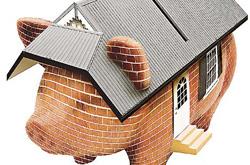
And although challenges persist, there are also superb opportunities available in the market for primary home buyers as well as investors alike – especially offshore – but cash is king with a lack of finance still a pervasive problem.
So said Neale Peterson, media publisher and property market analyst, at the recently-held annual Rode Conference in Sandton, Johannesburg, sponsored by property valuers Rode & Associates.
“The good elements include the return of the long-term investor, which is a good sign that the market is stabilising. Interest rates are also the lowest it is has been in 30 years, which translates into obvious opportunities for buyers. Over and above that, we might even see more future rate cuts if the national and global economies don’t recover fast enough or relapse.
“Another prominent factor that should make investors and buyers excited is the fact that there are a huge amount of well-priced properties on the market and they can pick, choose and bargain. Lots of these have below-market values of around 40%.”
Unfortunately, there are also the bad and ugly sides of the current market, he said. “The bad elements range from a high amount of sale in execution (SIE) properties to the re-emergence of the property trader and speculative buying, which is what caused the worldwide economic crisis in the first place.
“We’re also seeing fluctuating and inconsistent asset valuations and this is stymieing deals. This, of course, varies from area to area, but it is a major stumbling block in the property market.
“The ugly side of things is that corruption and fraud is increasing again with deeds transfers and property transactions and there are some very dodgy deals occurring again, which doesn’t bode well for the recovery or soundness of the market.”
He says on the bright side there are some excellent offshore opportunities, but adds that finance remains a big problem. “There’s no better time to invest offshore than now, and even Donald Trump said there has never been a better time to buy a property in America than now. Many properties are on the market at 60% below market value.
“No matter what you buy these days, whether it be offshore or in SA, the mantra of ‘cash is king’ is at the order of the day. But access to good funding remains an obstacle to home ownership and property investing. That is why creative funding has become vital and there is a definite increase in auction sales for investors buying and selling through joint ventures (JV’s).
Andrew Watt, executive director of data service provider Lightstone, said Absa continues to write the lowest loan-to-value (LTV) deals, whilst the other banks are granting bonds of around 90%. “FNB has a generally higher LTV book profile than its competitors, with Absa and Nedbank being the most conservative.”

He says despite the seasonal dip at the end of 2009 transfer values on volumes have steadily increased through 2009 reaching a peak of nearly 20,000 or R14bn per month. “Monthly house price is now at 1% per month, but is showing signs of slowing. Similarly, the extended National House Price Index was 10% year-on-year (y/y) as of the end of June, However, bank data shows that inflation may be slowing and may only be up 7,5% y/y.”
He says the proportion of transfers that are bonded has stabilised at about 60%. “The indices for middle, high and luxury markets are now each rising steadily. However, the proportion of bonded transactions has decreased the most in middle, high and luxury markets, although there are signs of improvement. Stock growth appeared to have swung to the lower end of the market and banks are also heavily focused on affordability.”
“This said, driven by credit availability, overall transfer volumes are 60% down from 2004-2007 volumes, with the drop-off worst in the ‘upper’ segments.”
He says the freehold segment has surprisingly reigned supreme over sectional title during the last two years. “Two factors come into play in this trend: There is more sectional title stock on the market and people have a renewed focus on having more space.”
Cees Bruggemans, chief economist at FNB, said there will in his estimation not be any further interest rate changes in the next 12 months. “The housing market is not in a bubble, it is repairing itself and we are in a long recovery cycle.” – Eugene Brink
Readers' Comments Have a comment about this article? Email us now.








